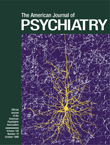Domestic Terrorism With Chemical or Biological Agents: Psychiatric Aspects
Abstract
OBJECTIVE: This article highlights the mental health consequences of a domestic terrorist incident involving chemical or biological weapons. METHOD: The author reviews the literature on the neuropsychiatric effects of selected chemical and biological weapon agents, on the psychological sequelae of mass disasters, and on approaches to crisis intervention. RESULTS: Disturbances of behavior, affect, and cognition can result directly from the pharmacological actions of some chemical and biological weapon agents. In addition, an incident involving these agents can have considerable psychological effects on individuals and the community. In either case, some disorders are acute and others are prolonged or delayed in onset. Effective therapeutic intervention involves a broad range of clinical, social, and administrative actions. CONCLUSIONS: Psychiatrists have an important role in the management of a chemical or biological terrorist incident and, along with their other medical colleagues, should train and prepare for it.



